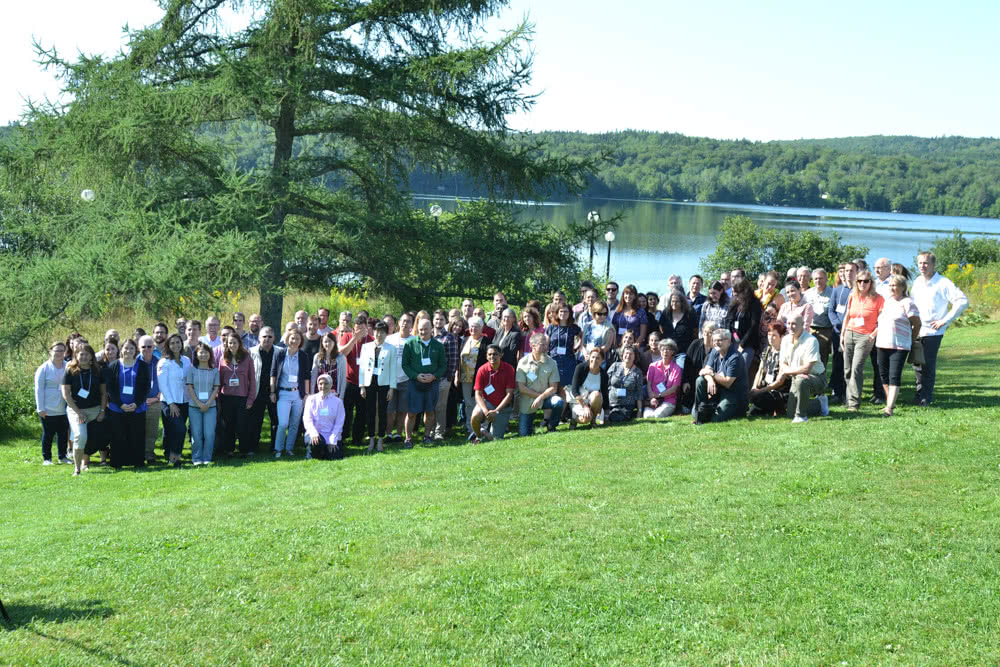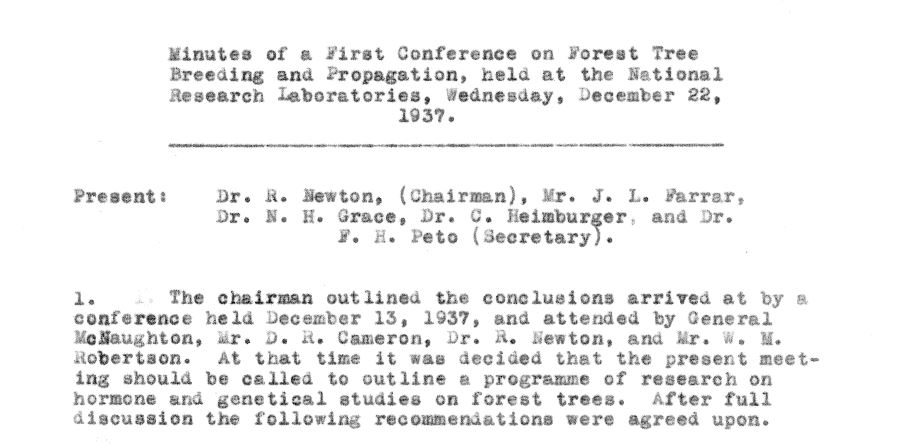Our History
The origin of what is now called the Canadian Forest Genetics Association (CFGA) goes back to December 22, 1937 when the First Conference on Forest Tree Breeding and Propagation was held at the National Research Laboratories of the National Research Council of Canada in Ottawa. Five people attended. Four more meetings were held in 1938 and one in 1939. Read all CFGA conference proceedings here.
The first meeting of the Subcommittee on Forest Tree Breeding, Associate Committee on Forestry, under the National Research Council of Canada was held in June 1939. This group met annually or biannually for 14 years. Drs. Carl Heimberger and John Farrar were active attendees at most meetings. Mark Holst made his first appearance in 1951. During this 14-year period 24 meetings were held.
In 1953 the inaugural meeting of the Committee on Forest Tree Breeding was held in Ottawa. The Committee was sponsored by the Forestry Branch, Department of Resources and Development and 12 attended. The Committee met annually until 1958 after which meetings were held biennially due to “meetings entailed a lot of work and that a fresher outlook can be presented in the longer time interval.”
The fifth meeting, attended by over 20 people, was held at the Petawawa Forest Experiment Station. Proceedings were published consisting of meeting minutes and discussion, members’ reports and papers.
In 1972, at the 14th meeting, the name was changed to the Canadian Tree Improvement Association and a draft constitution and bylaws were accepted. There were now 54 active members and 57 “breeders” in attendance. The Association continued to meet biennially a locations across Canada, except for the 27th meeting, which took place three years after the previous one.
In 2008, at the 31st meeting in Quebec City, the name was changed to the Canadian Forest Genetics Association (CFGA). One principal reason for changing the name was because the term “tree improvement”, did not fully represent the range of presentations at the conference nor the interests of delegates. “Forest genetics” was deemed more inclusive and better reflected the diversity of members’ interests and activities. A website was also created and the proceedings were shared electronically.
In 2021, CFGA was formally registered under the Canada Not-for-profit Corporations Act. In May of the same year, CFGA held an on-line student symposium due to the Covid-pandemic. The first AGM accessible to all members was held via video conference on October 21, 2022.
At the end of 2024, there were 67 active members and 19 honorary lifetime members. The latter category is reserved for persons who had distinguished careers in tree breeding, forest genetics, tree improvement or tree seed.

